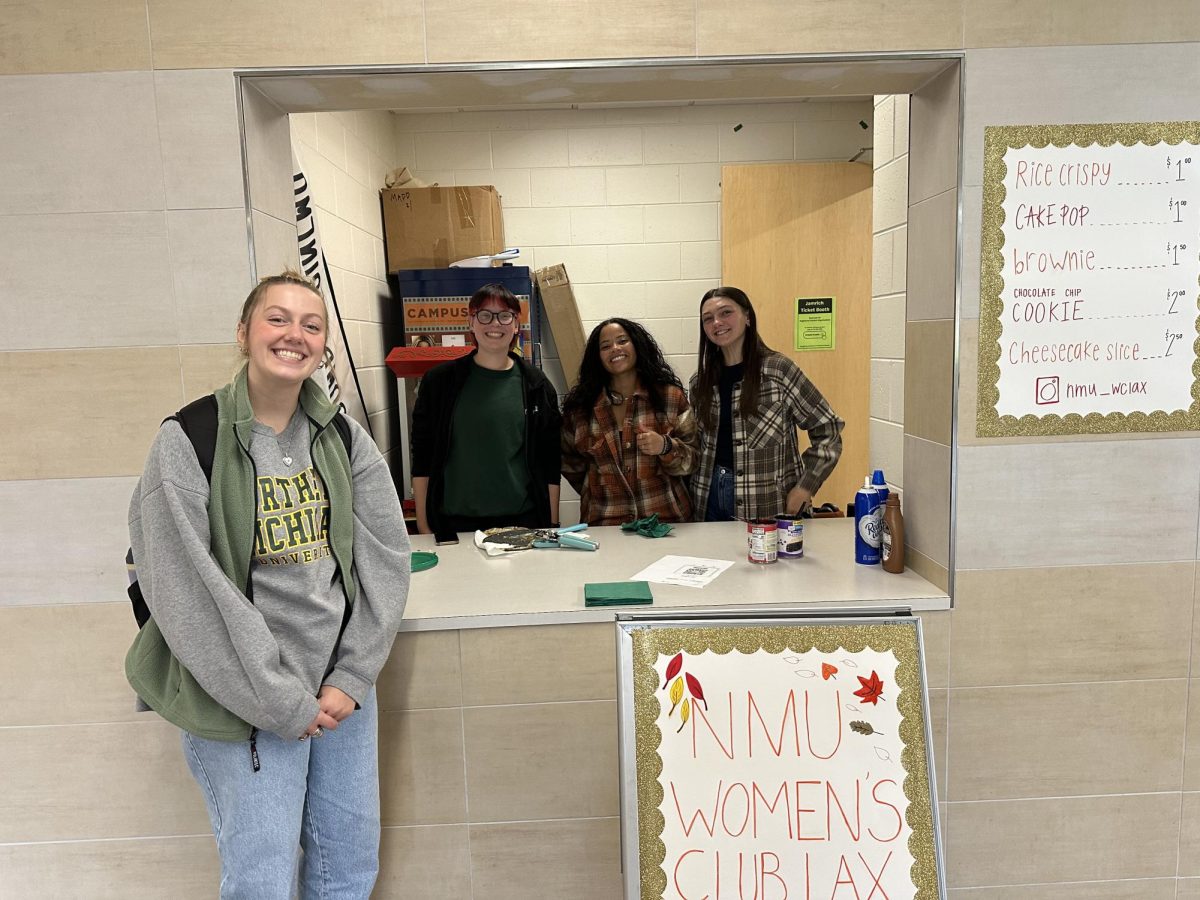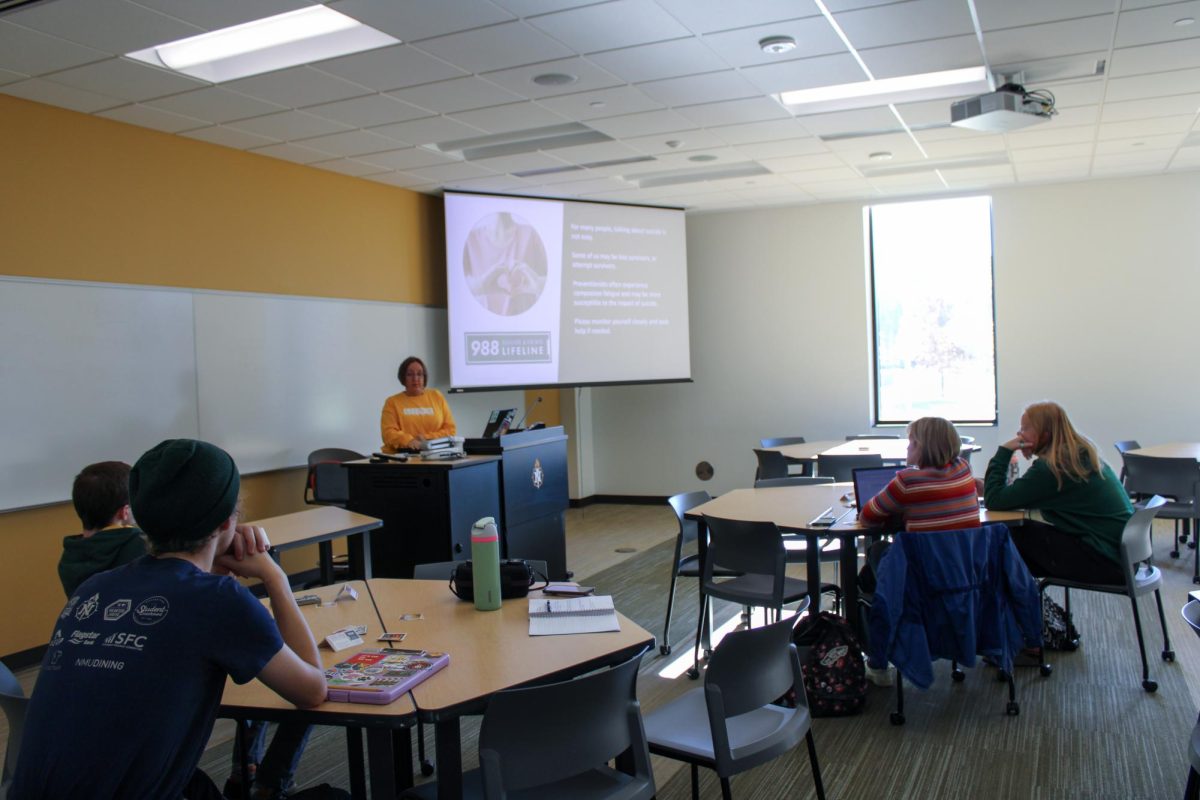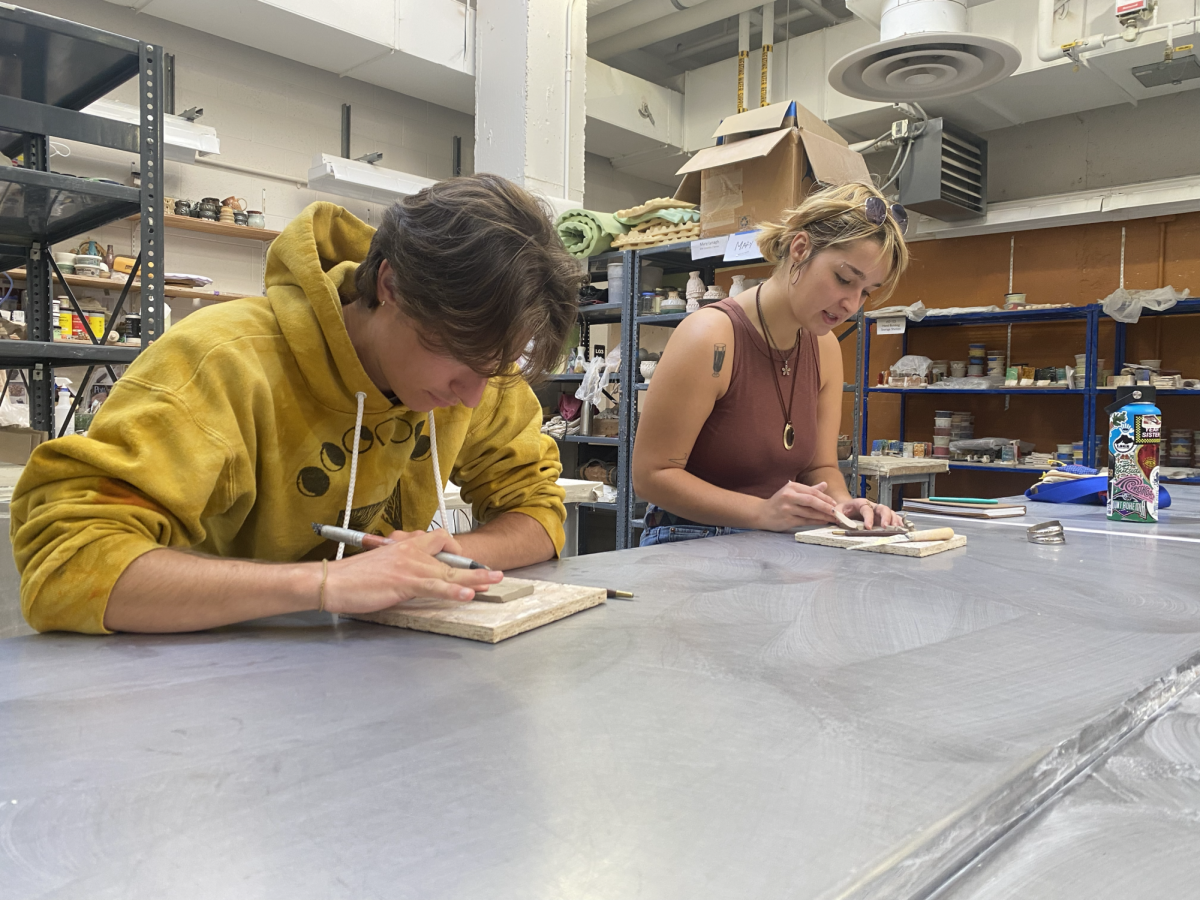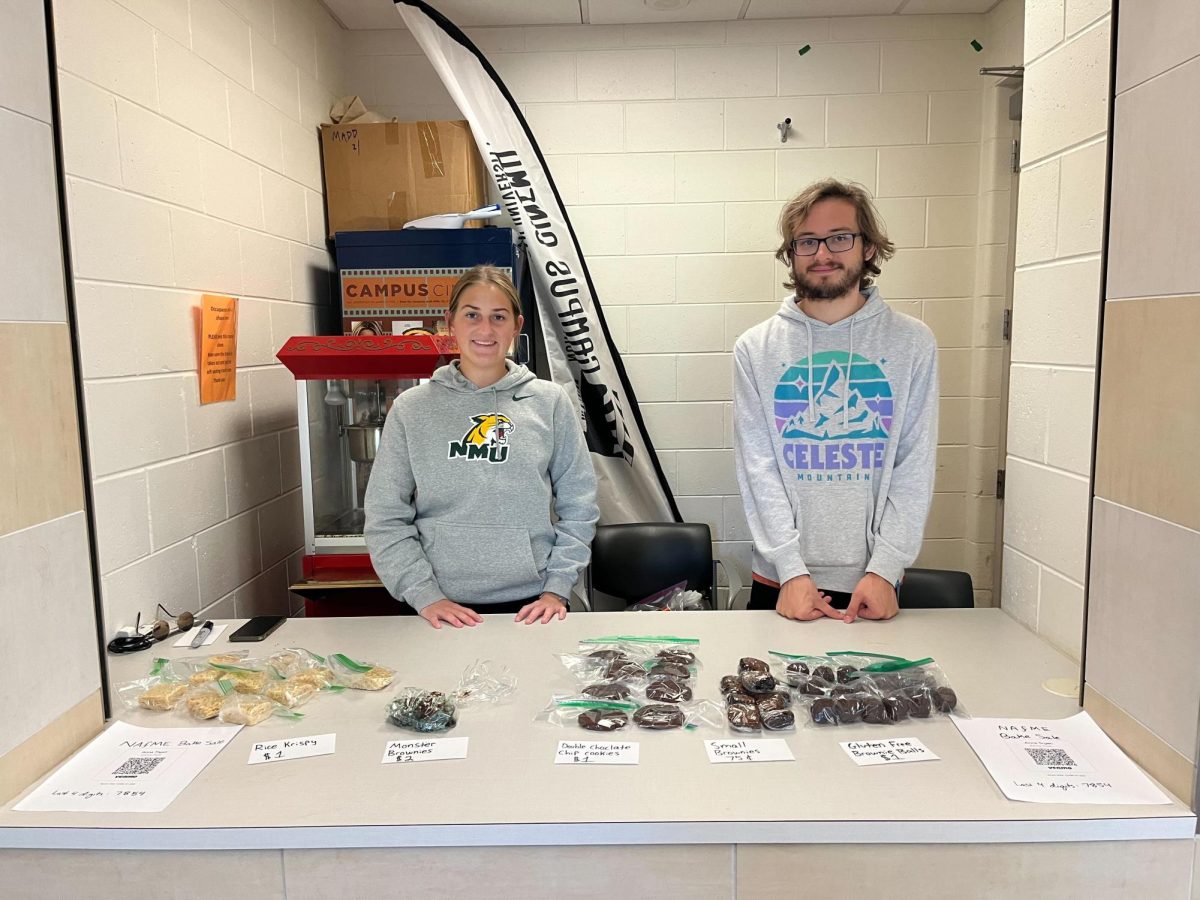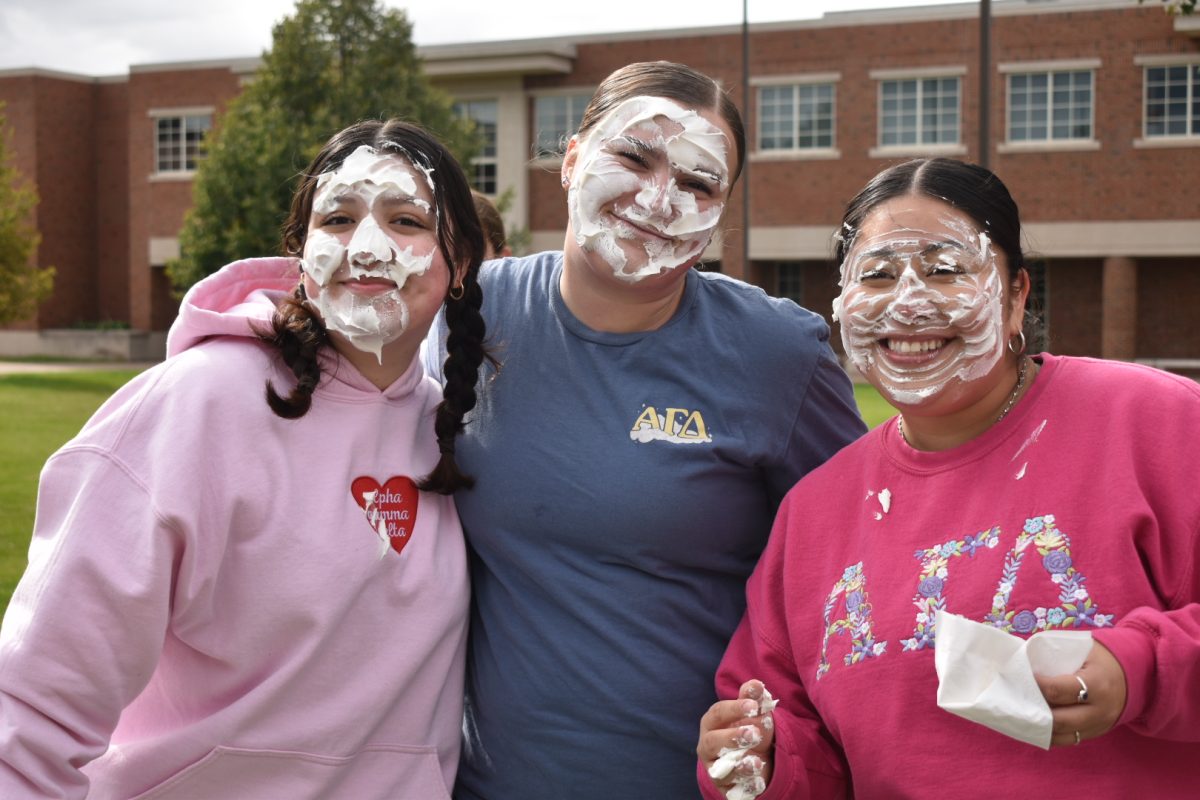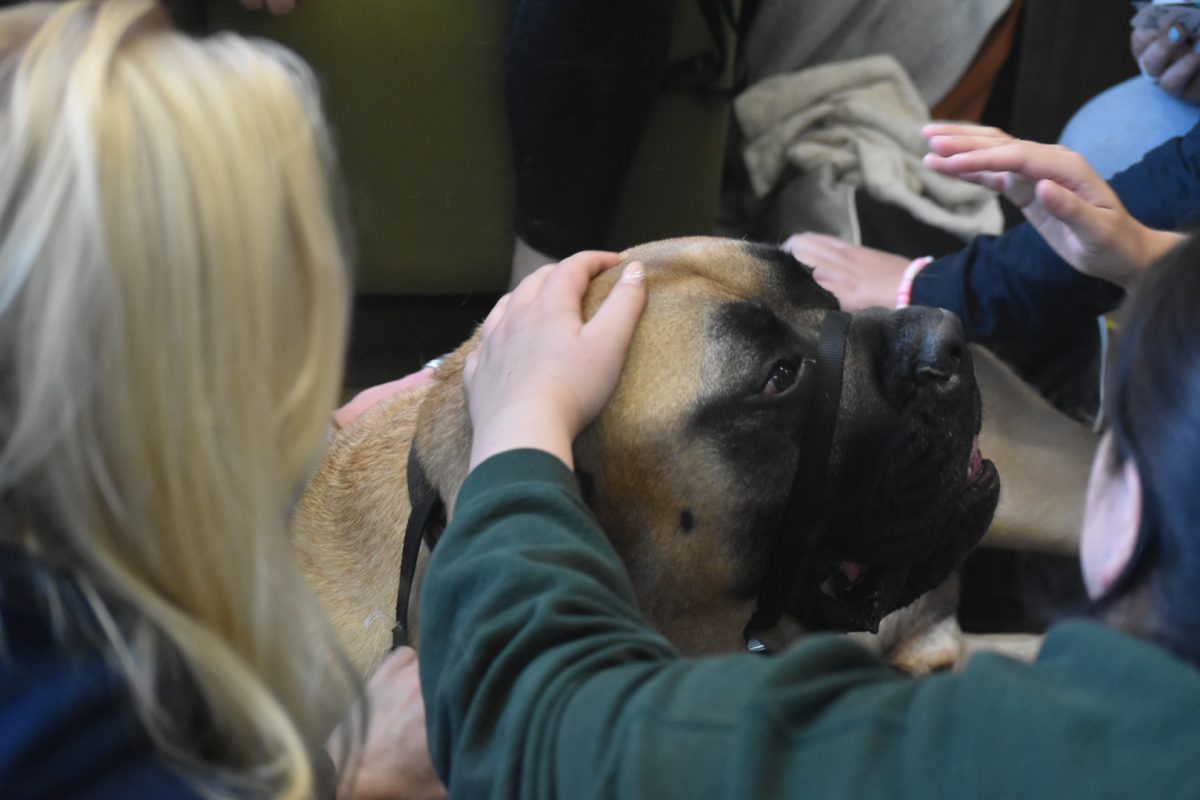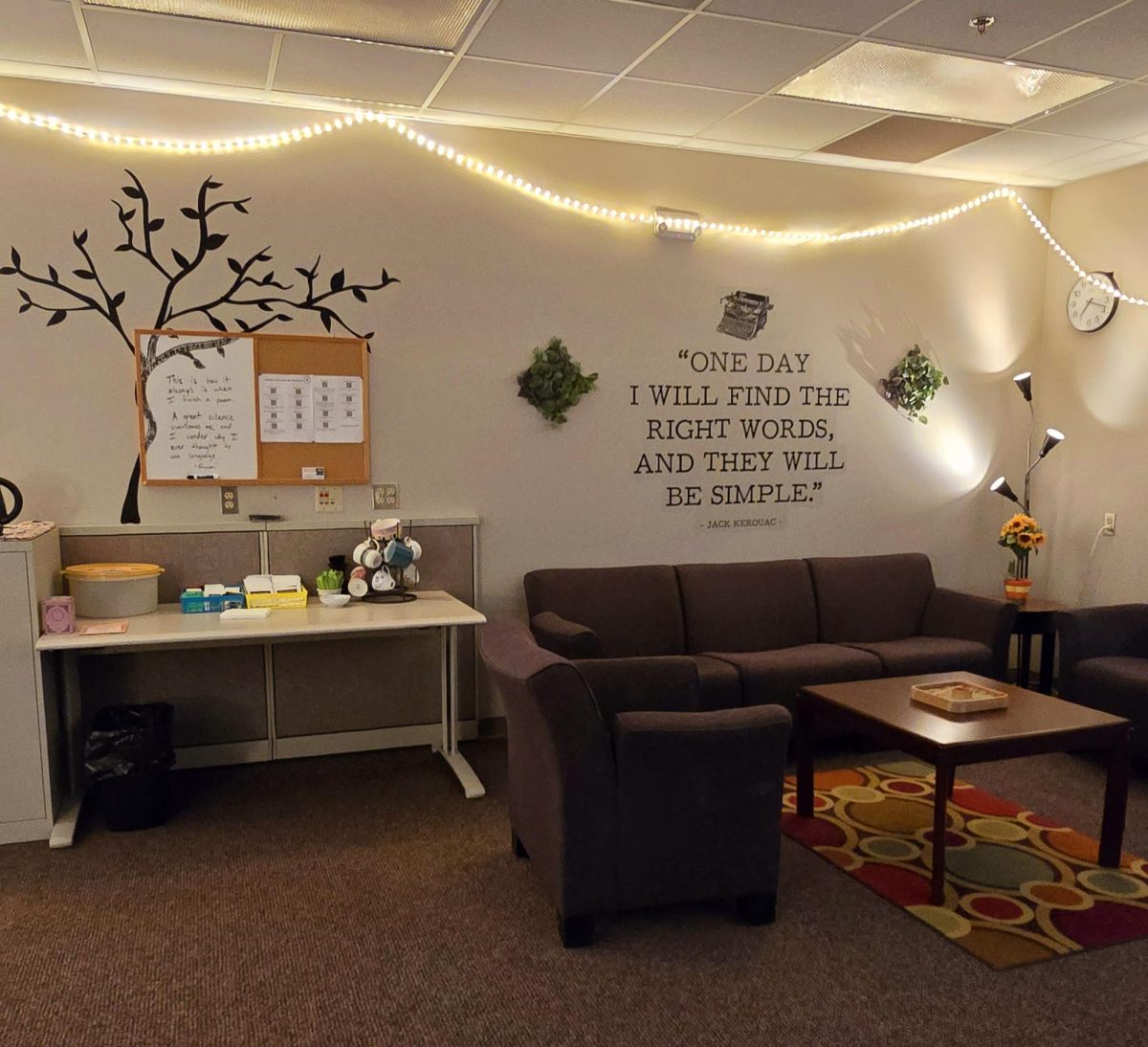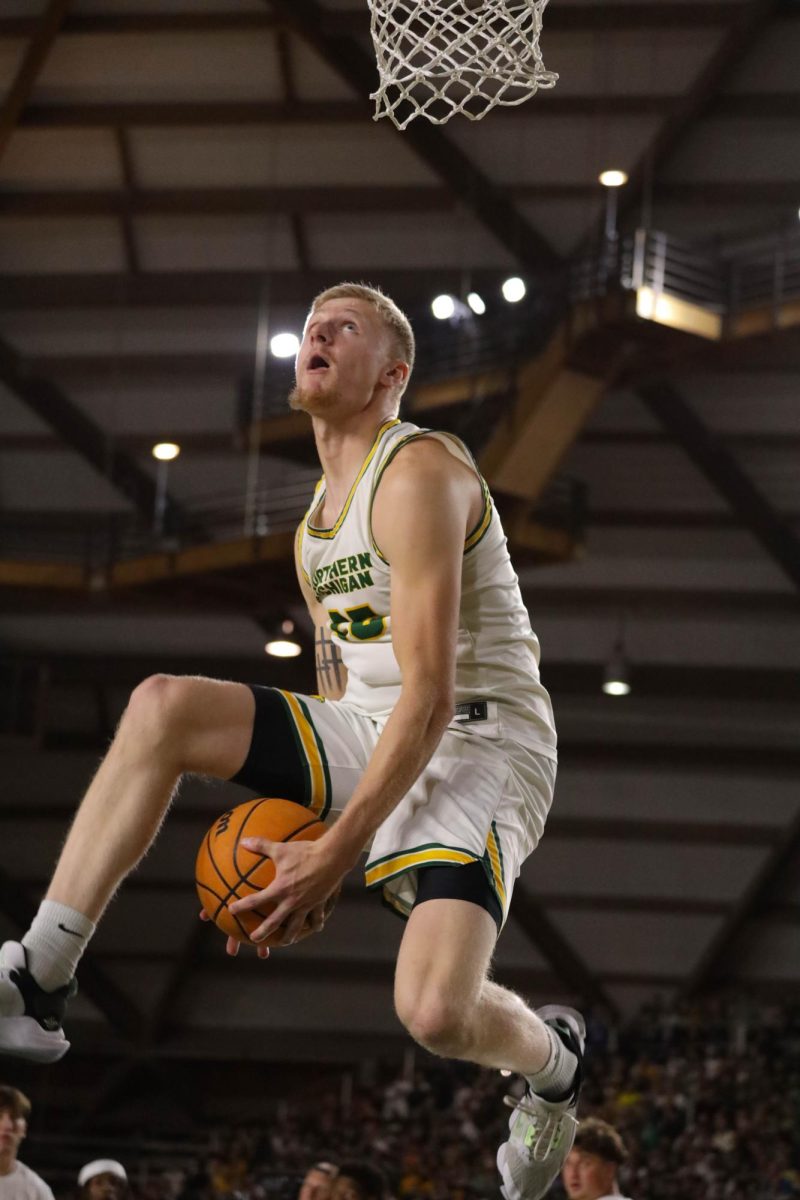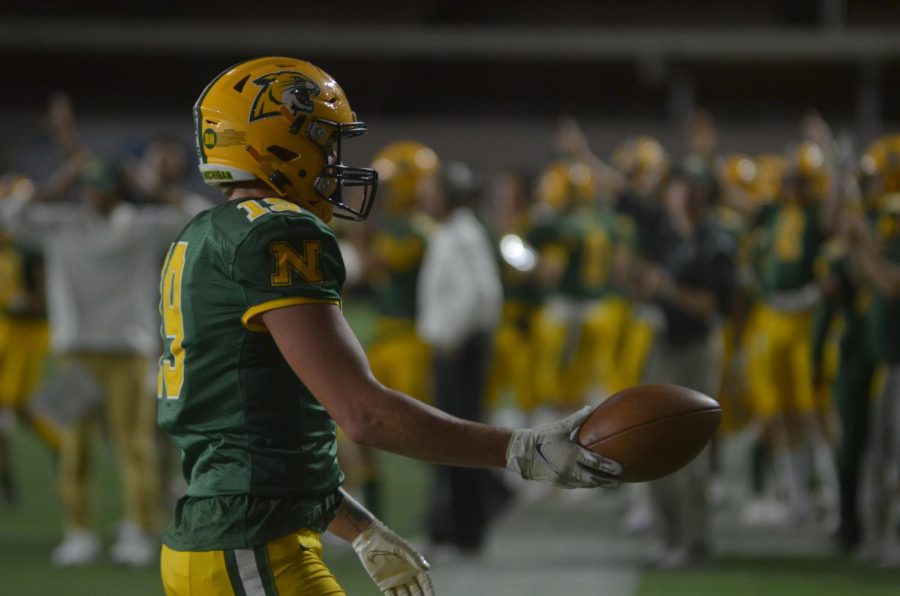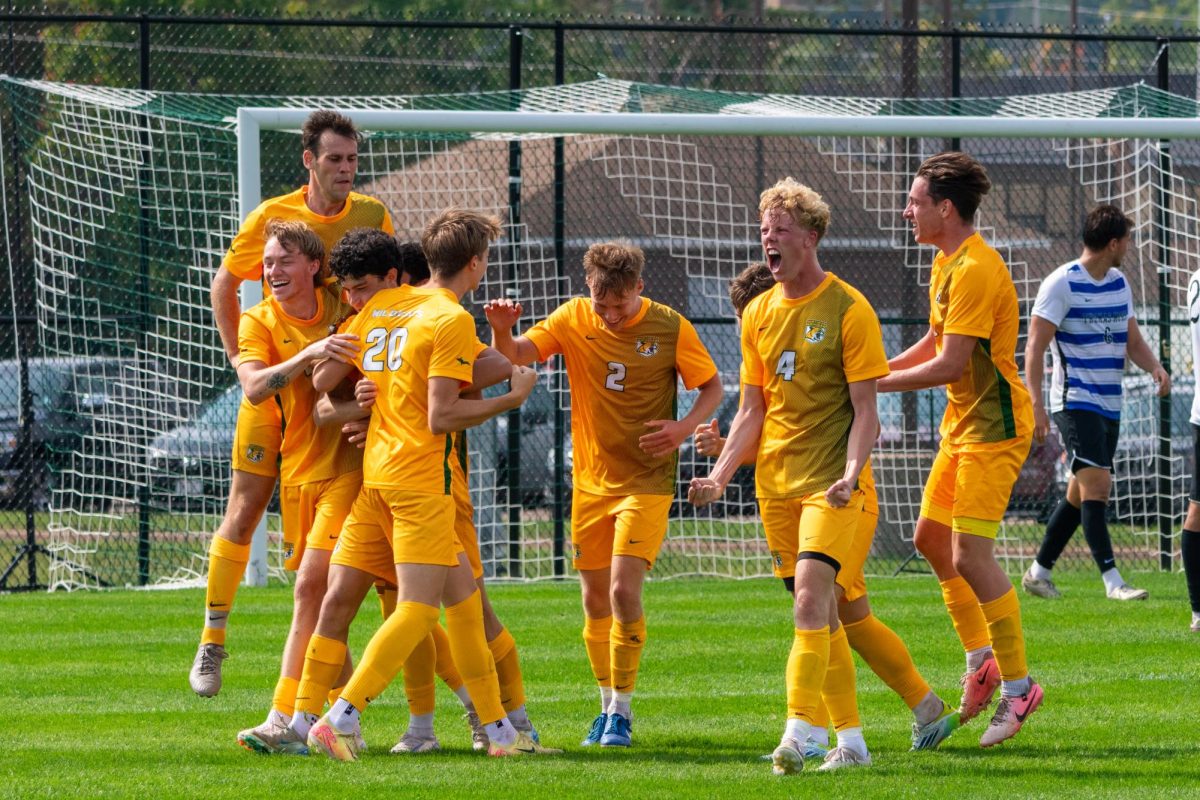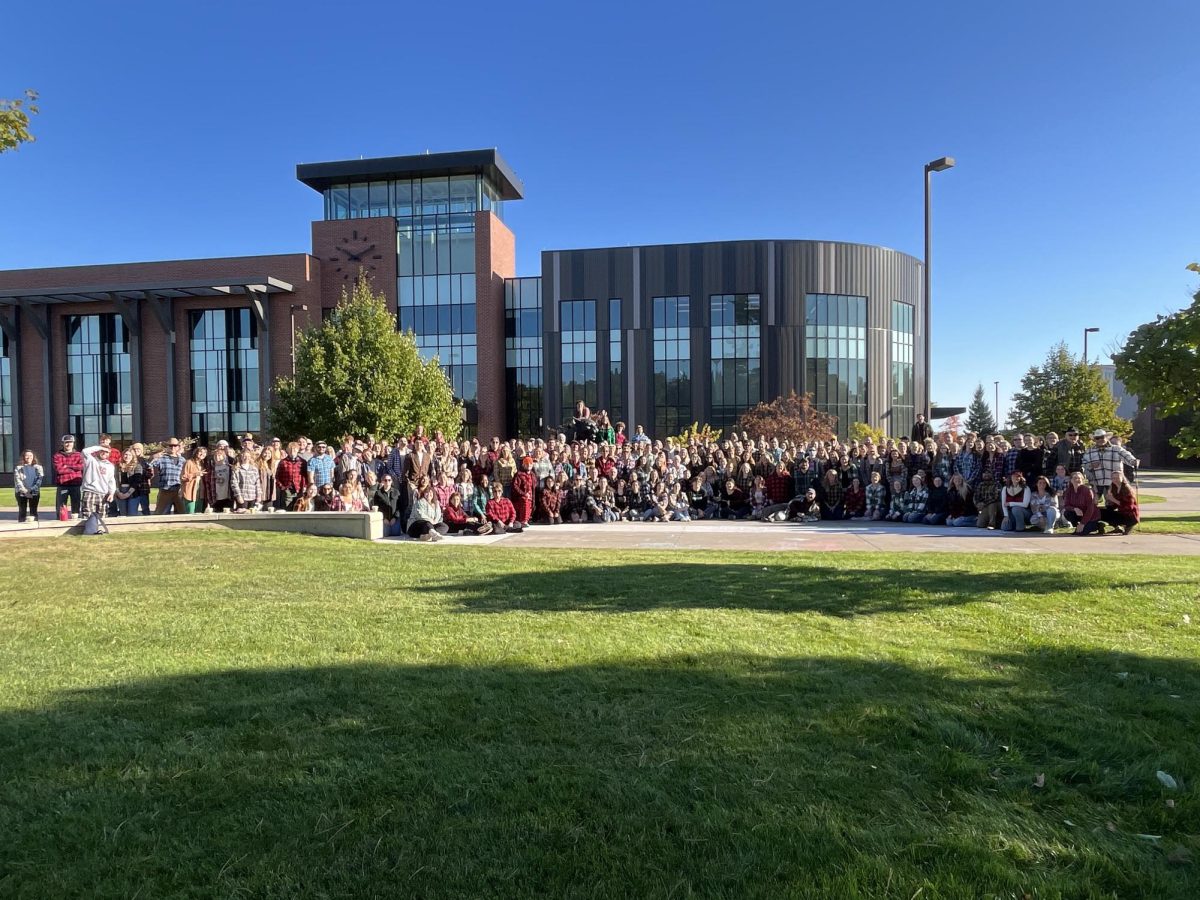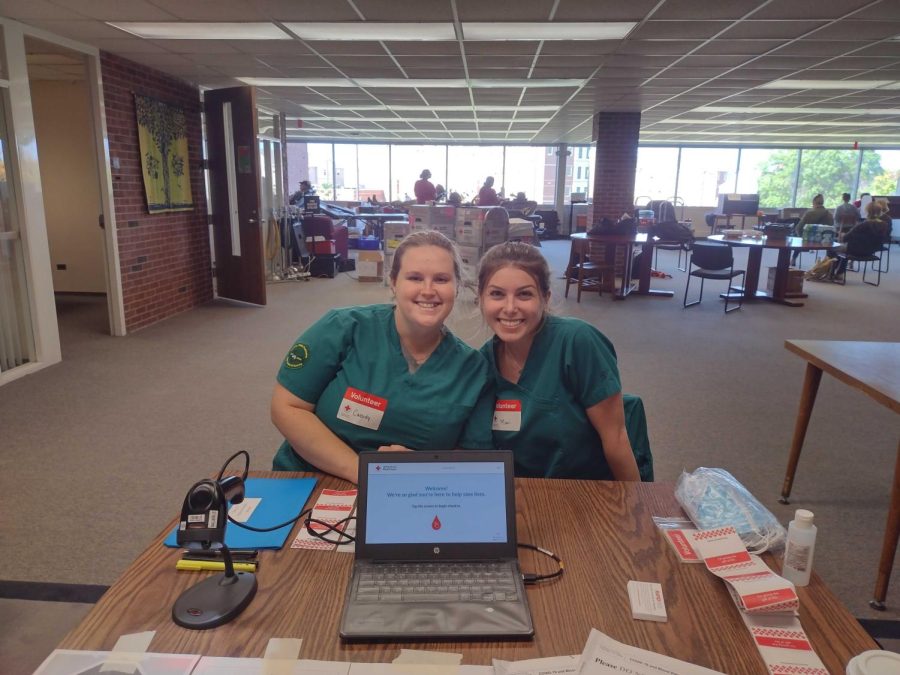Nation facing blood shortages; Red Cross hosts blood drive at Lydia M. Olson Library
LET’S DONATE – Cassidy Orr (left) and Maci Aho (right), seniors and nursing majors, volunteered to work at the registration station at the Red Cross Blood Drive while students, staff, and Marquette community members donate in the background.
September 15, 2022
The Red Cross hosted a blood drive to help with the national blood shortage on Sept. 14 in Lydia M. Olson Library from 10 a.m. to 3 p.m. NMU nursing students volunteered to run the registration desk for the blood drive.
Due to COVID-19, staffing shortages and a lack of traditional blood drives, the Red Cross and blood centers across the nation are facing blood shortages.
According to America’s Blood Centers, only 3% of blood centers have a 3+ day supply of blood for their communities.
In a recent email, NMU’s Interim President, Kerri Schuiling, said, “The U.P. Regional Blood Center continues to have a critical shortage of several types of blood. The Center is the sole provider of blood for the U.P.’s 13 hospitals.”
Maci Aho, senior and nursing major, said that members of the local community should donate blood to reduce the shortage.
“If you are able to donate blood, you should,” said Aho. “You might feel kind of lightheaded, but at the same time, you feel good about yourself because you know that you could have just saved a life and I just think that is so important.”
After blood is donated to the Red Cross, it is sent to be processed and tested for infectious diseases. Then, it can be stored for a little over a month before either needing to be used or discarded.
According to the Red Cross, “Blood transfusions are given to patients in a wide range of circumstances, including serious injuries (such as in a car crash), surgeries, childbirth, anemia, blood disorders, cancer treatments and many others.”
For those who are interested in donating, a few eligibility requirements need to be met. Donors must be at least 17 years of age, weigh at least 110 lb. and be in good health.
“Everybody needs blood,” Cassidy Orr, nursing major and senior, said. “If you can give…if you can help, I think it is the right thing to do, especially because it [the NMU blood drive]is a community-based drive.”
For those that missed the blood drive, there are many other opportunities to donate.
The U.P. Regional Blood Center hosts blood drives often and is accessible through its Facebook page. The Red Cross will be holding another blood drive at NMU next semester on Jan. 26.
While this blood drive was not organized by NMU’s School of Nursing, students from the major still came to volunteer to fulfill their clinic hour requirements.
“We all picked our own clinic sites,” said Aho. “Each site has different volunteering activities that surround population health … we [Orr and Aho] have never done a blood drive before, so that is why we are out here.”

